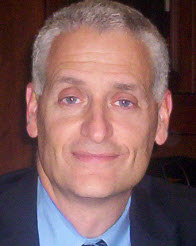In the Society for Participatory Medicine we talk about patients shifting “from being mere passengers to responsible drivers of their health.” Two posts Tuesday from SPM members provide some great specifics.
 First, orthopedist @HJLuks published Your Role in Avoiding Medical Errors, 101. A few highlights – see the whole post:
First, orthopedist @HJLuks published Your Role in Avoiding Medical Errors, 101. A few highlights – see the whole post:
- “Look at your medical record. … As health information exchanges, and collaborative networks enable the sharing of information – – – that can work both to your benefit, as well as amplify the risk of harm. Bad information in… bad information out.”
- “when your physician or healthcare provider is discussing their thoughts on your diagnosis, and a possible treatment plan, it is extremely important that you feel comfortable in questioning either the diagnosis or the treatment plan and asking whether other options or possible diagnoses are possible“
- “Although many patients do in fact seek second or third opinions from a specialist, they rarely seek second opinions, if ever, on diagnostic studies. …
- The very same holds true for pathology specimens. There are pathologists who are highly sub specialized in certain areas and thus are far better qualified to determine whether or not a tumor they’re looking at is malignant, benign, and what subtype of tumor it might be – – – which could make the world of difference when determining what treatments are available.”
There’s more – hm, should we have a quiz on Friday??
 The other was from Amy Romano (@MidwifeAmy) of Childbirth Connection, who’s appeared many times here: How to Get Good Maternity Care, on the Lamaze International Science & Sensibility blog. It’s got multiple resources – here’s one, a slide show of their ten pointers:
The other was from Amy Romano (@MidwifeAmy) of Childbirth Connection, who’s appeared many times here: How to Get Good Maternity Care, on the Lamaze International Science & Sensibility blog. It’s got multiple resources – here’s one, a slide show of their ten pointers:
Also available on the post is a PDF of the tips and a short video, Childbirth with a Heart, that makes a great case in just 2:32 for being actively engaged in all aspects of birth – not just the naming.
Thanks to both of these professionals – a physician and a midwife – for sharing these empowering and enabling posts. Each supports patients being active, responsible partners in participatory medicine.







Recent Comments